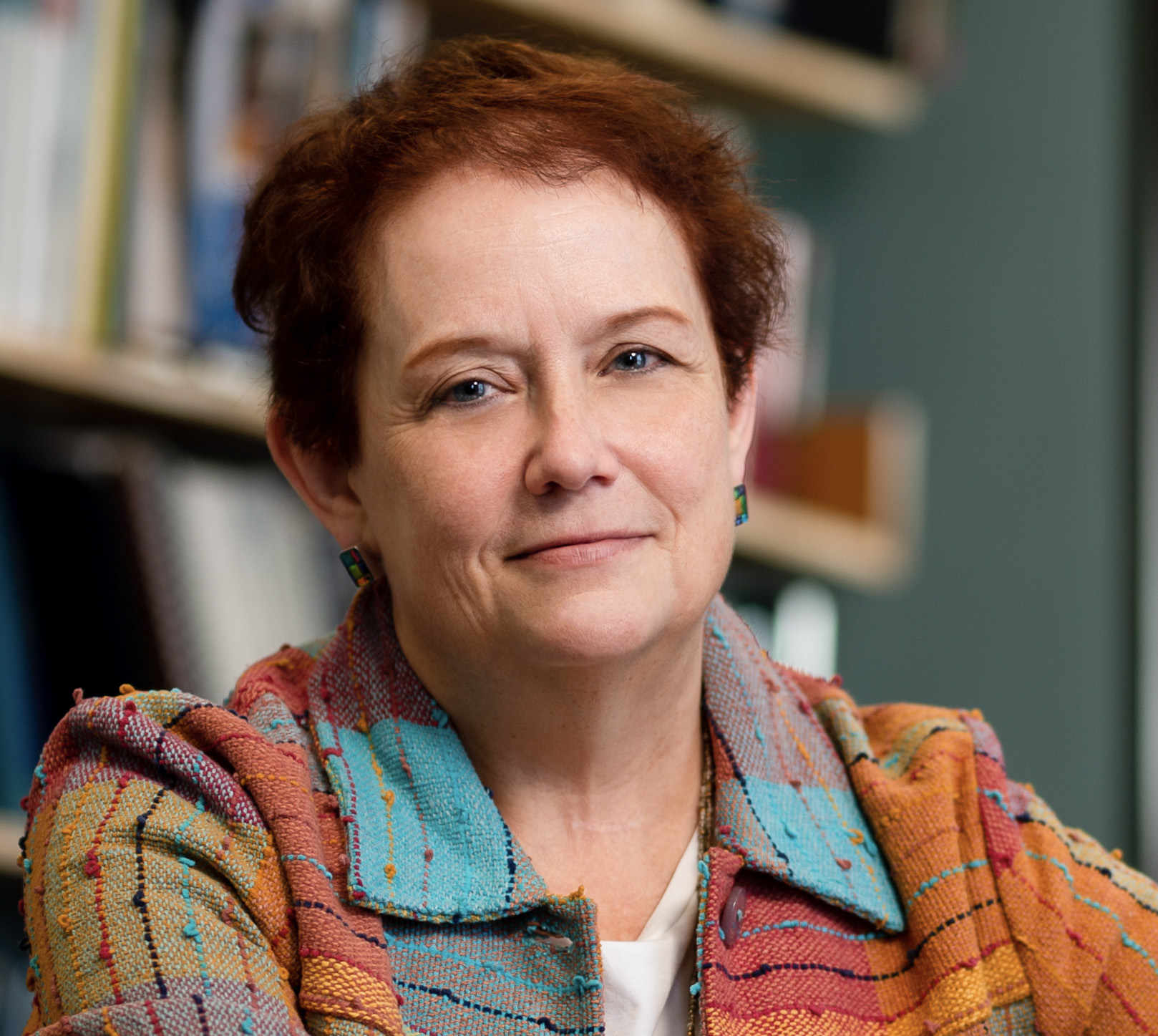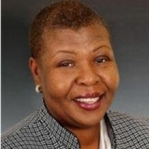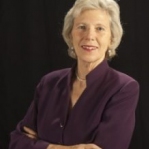People
Staff

Goutham M. Menon, Ph.D., MA., MBA.
CEO
Professor & Former Dean, Loyola University Chicago
goutham@socialworkmanager.org
Dr. Menon earned a master’s degree in social work from the Madras School of Social Work, Chennai, India and his Ph.D. in Social Work from the University of Illinois at Urbana-Champaign. He received his MBA (Sustainability & Entrepreneurship) from the University of Nevada, Reno. He has served as a faculty at the University of Texas at Arlington; University of South Carolina; University of Texas at San Antonio; University of Nevada at Reno (UNR - Professor & Director); and Loyola University Chicago (LUC - Professor & Dean; Special Assistant to the President – Strategic Plan Implementation). Dr. Goutham Menon is currently serving as CEO of the Network for Social Work Management.
Dr. Menon’s areas of expertise lie in the utilization of information and communication technologies for human services; distance education; leadership; innovation & strategy; and higher education. He has been actively involved in various leadership roles at the Council on Social Work Education, including serving as an elected member of the Board of Directors. Dr. Menon served on the board of the National Association of Deans and Directors (NADD) as Vice-President and Program Chair. He served on the board of International Consortium for Social Development as Vice-President and then as Secretary General during 2008-2018.
Dr. Menon is currently Editor of Best Practices in Mental Health. Dr. Menon was inducted to Alapha Sigma Nu, the Jesuit Honor Society, in 2019. He was also awarded the Jim Billups International Social Development Leadership Award by the International Consortium for Social Development in 2019.

Jennifer Luna, MSSW
Director of Programs
jennifer@socialworkmanager.org
Jennifer Luna, MSSW, serves as the Program Coordinator for the Network for Social Work Managers. She brings over 20 years of experience in presenting and training on career development topics specific to the profession of social work at the local, state, and national level. Her expertise lies in macro social work, professional branding, academic branding and the professional development cycle of social workers. She is also a certified Gallup Strengths Coach and a certified John C. Maxwell Coach, Teacher, Trainer, and Speaker, helping social workers identify and leverage their strengths, skills, and leadership potential.
As the former director of the DiNitto Center for Career Services at University of Texas at Austin School of Social Work, she established and administered the daily operations of the nationally ranked and model program that serves over 800 students and alumni. She continues to collaborates with other schools of social work, NASW, and CSWE on career development issues, including licensure, labor market, and professional identity. She also writes a column for The New Social Worker Magazine, and has published and spoken on topics such as personal branding, academic job search, and resiliency. Jennifer's mission is to uplift the profession of social work one social worker at a time, one organization at a time and one system at a time.
Board of Directors

Nancy Smyth, Ph.D., LCSW.
President
Professor & Associate Dean for Faculty Development, University at Buffalo
nancy@socialworkmanager.org
Dr. Nancy J. Smyth is professor at the University at Buffalo (UB) School of Social Work. She currently serves as the associate dean for faculty development after serving as dean of the school from 2004-2021. Smyth’s interest is in leadership during polycrisis, that is, these “white water rapids” times of the rapidly evolving, overlapping dramatic shifts in the world. In doing this work, she integrates her experience as a leader, manager, innovator, and educator while integrating futures-thinking and a social innovation lens. Smyth is President of the Network for Social Work Management and a member of the Grand Challenges for Social Work Leadership Board.
As dean, Dr. Smyth worked with the UB faculty and staff to integrate a trauma-informed and human rights perspective throughout the master’s curriculum, established the Buffalo Center for Social Research, expanded international education and research, began online degrees, including an online DSW focused on implementation science, and raised the rankings of the MSW program from 46% to the top 10% in the United States. Under Smyth’s leadership, the UB School of Social Work continued to build on the innovative use of technology when it launched an online DSW program in Fall 2019 incorporating innovative technologies, including virtual reality and Professional Collaboration Networks.
Prior to becoming dean, Dr. Smyth’s research, practice, and teaching experience focused primarily on trauma, substance abuse, and on working with people recovering from those experiences, including the use of innovative treatment approaches like EMDR and mindfulness meditation. She was involved in four different NIH-funded research studies with Principal Investigators Gerard Connors, Christopher Barrick, Brenda Miller, and Bessel van der Kolk. She is an EMDRIA Certified EMDR Therapist, an EMDRIA Approved Consultant, and was an EMDRIA approved trainer from 1998-2004 when she taught EMDR at the University at Buffalo. Dr. Smyth also has worked as a clinical social worker in private practice and in non-profit settings, and as a manager in non-profits. Finally, in an effort to help social work educators build confidence in teaching with technology, with colleagues Laurel Hitchcock and Melanie Sage, Smyth cowrote Teaching Social Work with Digital Technology (Hitchcock, Sage, & Smyth, 2019) and crowdsourced social work educators’ perspectives on the 2017 National Association of Social Workers (NASW) Technology Standards.
Dr. Smyth obtained her degrees from the State University of New York at Albany: a BA in psychology, an MSW, and PhD in Social Welfare, and completed a Futures Thinking Specialization with the Institute for the Future. She is also a New York State Licensed Clinical Social Worker (LCSW), Board Certified Expert in Traumatic Stress, EMDRIA Certified EMDR Therapist, and an EMDRIA Approved Consultant.

Karen Dixon, MSW., LMSW.
Vice President
Executive Director, Harlem Dowling West Side Center, NY
Karen Dixon is the Executive Director of Harlem Dowling-West Side Center for Children and Family Services. Harlem Dowling-West Side Center for Children and Family Services was founded in 1836 as the Colored Orphan’s Asylum. The agency provides Family Support and After School programming, evidence-based individual and group level parenting interventions, and Emergency Food Pantry services.
Karen holds a Bachelors of Arts from the State University of New York at Stony Brook, and a Masters of Social Work from Hunter College School of Social Work. Ms. Dixon completed Columbia Business School Executive Education, Institute for Not-for-Profit Management in 1999, and is a Licensed Masters of Social Work participating in various advocacy initiatives throughout the City and State.
Since her appointment as Executive Director in 2012, Ms. Dixon’s management and leadership has expanded programming and increased networking throughout the Harlem community. Advocating for children and families for adequate child care services, after school programming, and health and mental health services, are among her daily activities. In 2016, Harlem Dowling-West Side Center and The Children’s Village, Inc. completed the Home for Harlem Dowling building project with 60 units of affordable housing including 12 studio units earmarked for youth leaving the foster care system.
Ms. Karen Dixon co-chairs the NYC Chapter of the Network for Social Work Management, mentors new Executive Directors and Women of Color, and serves on the board of several organizations. She works closely with the National Association of Social Workers- NYC Chapter, Columbia University Teachers College, the Council of Family and Child Caring Agencies, and FPWA. Ms. Dixon is a member of Manhattan Community Board 10, serving on the Health and Human Services and Land Use committees. She is also the Chair of the Land Use committee and is the Chair of the NYC Health & Hospital/Harlem Community Advisory Board and Council of Community Advisory Boards.
Remaining steadfast in her commitment to children, she continues her efforts to ensure that they are safe in their communities with their families.

Bruce Friedman, Ph.D., ACSW., CSWM., LCSW.
Secretary
Professor & Former Chair, University of Texas El Paso

Gary Bess, Ph.D., MSW.
Treasurer
Principal, Gary Bess Associates, CA
Dr. Gary Bess holds two master’s degrees in social work and applied sociology from Case Western Reserve University and Kent State University, respectively. He also has a doctorate in social work from the University of Southern California (USC). Gary has taught in graduate schools of social work at the University of California, Los Angeles, USC, and California State University (CSU) in Long Beach and Chico. He has also taught grant writing and program evaluation for graduate students on several campuses.
For several years, Gary directed free medical clinics in southern California, including the South Bay Free Clinic in Manhattan Beach and the Los Angeles Free Clinic. In 1991, he began consulting with public and private health and human services organizations, universities, and nonprofits, moving from southern to northern California when his wife Cindy was offered a professorship at CSU Chico. Over this time he grew GBA from a sole proprietorship to a California-based corporation.
Gary and GBA have developed specialties in FQHC applications, compliance, needs assessment, and in evaluation for Native American planning and treatment programs. He has co-authored two articles for the Journal of the National Center for American Indian, Alaska Native Mental Health Research on the life cycle of the evaluation process and on process evaluation among Native American communities. In 2021, he was the lead author on an article in the Encyclopedia of Social Work on social work leadership, and in 2021, was inducted into the California Social Work Hall of Distinction.

Alfredo Aguirre, LCSW
Member Emeritus
Past Director of Behavioral Health Services of San Diego County
Alfredo Aguirre, LCSW, has served on the Escondido Clubhouse Advisory Board since the summer of 2023. He is the past Director of Behavioral Health Services of San Diego County retiring in 2019. He served San Diego County in the capacity of Mental Health Director since 1999. As an advocate for the improvement of accessible quality behavioral health care for all ages and communities, he continues to serve on the Board of Directors of the National Network of Social Work Managers as an Emeritus member; he served as member of the National Hispanic and Latino Prevention Advisory Council of the National Latino Behavioral Health Association (NLBHA). His behavioral health leadership roles included serving on the Board of the California Institute of Behavioral Health Solutions. In 2017, he was appointed by Governor Brown to serve on the No Place Like Home Advisory Committee. Today, Mr. Aguirre continues to serve the behavioral health community as a part time consultant.
Mr. Aguirre has worked in the mental health field for over 40 years as a psychiatric social worker, staff supervisor, manager, and executive. Prior to his work in San Diego, Alfredo served San Mateo County Mental Health for 20 years culminating as the Deputy Director, Children’s Mental Health. He has received numerous awards including a Lifetime Achievement Award from the National Association of County Behavioral Health and Developmental Disability Directors (NACBHDD).
He received his Master’s Degree in Social Welfare in 1978 from the University of California at Berkeley and is Licensed Clinical Social Worker.

Katharine Briar-Lawson, Ph.D., MSW.
Member
Professor & Dean Emiritus, University at Albany
Katharine Briar-Lawson is a national expert on family focused practice and child and family policy. Among her books (co-authored) are Family-Centered Policies & Practices: International Implications (2001), and (co-edited) Innovative Practices with Vulnerable Children and Families (2001), Evaluation Research in Child Welfare (2002), Charting the Impacts of University-Child Welfare Collaboration (2003), Social Work Research (201OJ, Social Work Practice Research (201OJ, and Globalization, Social Justice and the Helping Professions (2011), and The Children's Bureau: Shaping a century of child welfare practices, programs and policies. Until this year she-chaired the Gerontological Task Force for the National Association for Deans and Directors and served as a past president. In addition, she is a Co-Pl of the National Child Welfare Workforce Institute.

Kristina Jaskyte Bahr, Ph.D.
Member
Professor, University of Georgia
Dr. Kristina Jaskyte Bahr has an established record of research and productive scholar ship in the areas of innovation, change, creativity, and Design Thinking in nonprofit organizations. Her publications pertaining to these topics appeared in national and inter national journals, including Public Administration Review, International Journal of Volun tary and Nonprofit Organizations (VOLUNTAS), Nonprofit Management and Leadership, and Human Service Organizations: Management, Leadership, and Governance. Her work has been cited ina wide array of journals, cutting across many traditional and innovative disciplines.
She has presented her research at more than 37 conferences, including, but not limited to, the Academy of Management, Association for Research on Nonprofit and Volun tary Organizations (ARNOVA), International Society for Third Sector Research (ISTR), and the Society for Social Work Research. Her research has been funded by the National Science Foundation, the Rockefeller Foundation, the American Society for Association Executives Foundation, the Georgia Division of Family and Children Services (DFCS), and most recently by VentureWell, formerly known as the National Collegiate Inventors and Innovators Alliance. She has been engaged in a number of cross-cultural research projects and served as a grant reviewer for Nazarbayev University (Kazakhstan), the Social Sciences and Humanities Research Council of Canada (SSHRC), and the Czech Science Foundation. Dr. Kristina Jaskyte Bahr has acted as a keynote speaker, session chair, discussant, presenter, and moderator at numerous local community events and conferences, as well as at national and international events. She is currently serving on a State of Hope Advisory Council for the Division of Family and Children Services. She served as a consulting editor of the Social Work Research Journal, and has served on the Editorial Advisory Board of Human Service Organizations: Management, Leadership, and Governance for a number of years.

Michàlle Mor Barak, Ph.D., MSW.
Member
Professor, University of Southern California
Michàlle Mor Barak is in the vanguard of a new breed of social work and management experts focusing on global workforce diversity. In her award-winning book, Managing Diversity: Toward a Globally Inclusive Workplace (SAGE, 5th edition, 2022), she proposes an original model for creating an "inclusive workplace"– one that helps businesses, as well as public nonprofit organizations, integrate with society via expanding circles of inclusion at the organizational, community, state/national and international levels. The book has won the CHOICE award from the Association of College and University Libraries and the Academy of Management's Terry Book Award for "the most significant contribution to management knowledge."
Her scholarly publications were among the first to introduce the construct of inclusion to the discourse about global diversity management through groundbreaking research. Two measurement scales that Professor Mor Barak and her research team established and validated — the Mor Barak Inclusion-Exclusion Scale (MBIE) and the Diversity Climate Scale — have been widely used in for profit and nonprofit research and in corporate employee surveys and were translated to more than ten languages.
Her current research projects focus on diversity, work-family balance, social support and corporate social responsibility. They examine the impact of organizational culture on job satisfaction, organizational commitment and retention as well as individual well-being, mental health and turnover. Her studies test theoretically based models in both nonprofit and for profit organizations nationally and internationally. Professor Mor Barak's research demonstrates that diversity management and inclusion, when adopted as key business strategies, represent more than just doing the right and moral thing. They also constitute good business. Diversity management is essential if corporations are to adapt to an increasingly diverse workforce, and it gives them a competitive advantage in recruitment, retention, customer relations, marketing and developing a positive corporate image.
An internationally renowned scholar, Professor Mor Barak has led conferences on diversity at the Rockefeller Foundation's Bellagio Study and Conference Center in Italy, as well as at the Borchard Foundation's Chateau de la Bretesche in France.

Leti Cavazos, DSW, LCSW-S
Member
Founder & CEO of Cannenta Center for Healing and Empowerment, and Founder of Cannenta Foundation (Addison, TX)
Dr. Leti Cavazos, LCSW-S, is a distinguished leader in the field of social work, renowned for her multifaceted expertise and extensive experience. Serving as the Founder and CEO of the Cannenta Center for Healing and Empowerment, she has played a pivotal role in fostering healing and empowerment within the Hispanic community. Dr. Leti's dedication to social work is further evidenced by her establishment of the Cannenta Foundation, aimed at providing crucial support to vulnerable populations while overcoming financial and language barriers.
With academic credentials including a Master of Social Work from the University of Texas at San Antonio and a Doctor of Social Work with a specialization in Clinical Practice and Leadership from the University of Tennessee, Dr. Leti has honed her skills as a Licensed Clinical Social Worker Supervisor (LCSW-S). Her expertise in trauma therapy is underscored by advanced training and a research study on male victims of domestic violence experiencing homelessness, showcasing her commitment to addressing the unique challenges faced by marginalized communities.
Dr. Leti's significant contributions to the field have garnered widespread recognition, including being named one of Social Work Today's Top 10 Dedicated and Deserving Social Workers in 2020. Moreover, her leadership at the Cannenta Center led to the prestigious 2023 Emerging Business Award from the Greater Dallas Hispanic Chamber of Commerce, affirming the center's exceptional contributions. In 2024, she herself was honored with the Leader in Diversity Award by the Dallas Business Journal, highlighting her steadfast commitment to fostering diversity and inclusion.
Beyond accolades, Dr. Leti's impact is evidenced by her involvement in establishing Texas' first male domestic violence shelter and her innovative approaches to addressing social issues. Her work has been featured in local publications, testament to the profound influence she has had on communities. Dr. Leti Cavazos stands as an exemplary figure in social work, whose unwavering dedication, expertise in trauma therapy, and innovative solutions have positively transformed countless lives and earned her widespread acclaim and respect in the field.

Herbert K. Hatanaka, DSW.
Member
Executive Director, Special Services Group, Los Angeles, CA
Dr. Hatanaka has been with Special Service for Groups (a private nonprofit human service organization) since 1981and the Executive Director since 1984. During his administration at SSG, the agency has grown from a staff of less than 60 to over 650. SSG is acclaimed for diverse programming including the development and leadership of collaborative community-based projects and more recently rigorous academic-based research initiatives with renowned universities. SSG is one of the largest mental health providers for the LA County Department of Mental Health. He is currently an Adjunct Associate Professor at USC's School of Social Work (teaching since 1988) and serves on a number of public and private boards and committees on determining funding priorities and program policies. In particular, he is a leader for many multi-ethnic initiatives. Dr. Halanaka received his Doctorate in Social Work in 1982 from the University of California, Los Angeles. He has been in the social work field for 43 years and received the UCLA School of Social Welfare Alumnus of the year award in 2010. He has been a board member for the Network for Social Work Management since 2009.

Steve Hornberger, MSW.
Member
Director, Social Policy Institute, San Diego State University School of Social Work (SDSU), and Co-Director, SDSU Center for Excellence in Aging & Longevity (San Diego, CA)
Steve Hornberger MSW has more than 30 years of senior-level leadership in human services, community building and technical assistance. He is a strong advocate for family, peer to peer and community involvement to increase equity and has been successful engaging and sustaining collaboration among federal, state and local stakeholders. Currently, Steve is the Director of the San Diego State University Social Policy Institute (https://sdsusocialpolicyinstitute.org/) and Co-Director of SDSU Center for Excellence in Aging & Longevity (https://ceal.sdsu.edu ). Steve serves on numerous Boards and Advisory Councils, teaches MSW classes and leads the SDSU Board Fellows program. He was elected a NASW Pioneer in 2008 for “innovation and impact” in his career.

Al Rowlett, MBA, LCSW, CPRP
Member
President and Chief Executive Officer at Turning Point Programs (Sacramento, CA)
Al Rowlett is the Chief Executive Officer for Turning Point Community Programs, overseeing over fifty programs in ten Northern California counties. He is an ardent advocate and proponent of access and equity in health/mental health care for California's underserved and poorly served. Al is a current Executive Board Member for the California Council of Community Behavioral Health Agencies (CBHA) and the former Board Chair of CBHA and the California Institute of Behavioral Health Solutions. In 2021, Governor Gavin Newsom appointed Al to the Proposition 63 - Mental Health Services Act, Oversight and Accountability Commission (MHSA OAC). Al served as an Assembly Speaker appointee to the California Institute of Regenerative Medicine (CIRM) Independent Citizens Oversight Council (ICOC) as a Patient Advocate from 2013 to 2022.
Al holds a Bachelor of Arts degree from Ottawa University, a Master of Business Administration in Health Services Management from Golden Gate University, and a Master of Social Work from California State University Sacramento and is a Licensed Clinical Social Worker.

Joel L. Rubin, MSW, LSW, ACSW, CAE
Member
Executive Director, Illinois Chapter, National Association of Social Workers (Chicago, Il)
Joel L. Rubin, MSW, LSW, ACSW, CAE has served as the Executive Director of the 5,000 member Illinois Chapter of the National Association of Social Workers (NASW) since October of 1999. He has over 30 years of non-for-profit management and fundraising experience, including extensive work with boards of directors, committees and volunteers, and advocacy around a wide variety of social work, human service and international political issues, as advocating on behalf of social work workforce and licensure issues. In addition to his responsibilities in Illinois, Mr. Rubin, served as Acting Deputy Director of Chapter Operations for the NASW from March 2019 to July 2020.
He received his MSW from Jane Addams College of Social Work at the University of Illinois of Chicago in 1983 and a B.A in Comparative Politics from the University of Illinois at Urbana-Champaign in 1981. He is a member of the Academy of Certified Social Workers (ACSW), a Licensed Social Worker (LSW) in the state of Illinois and is also a Certified Association Executive (CAE).
Mr. Rubin is a graduate of the Wexner Heritage Fellowship Leadership Program and a current adjunct professor at Loyola University Chicago School of Social Work. He currently serves on the State of Illinois’ Behavioral Healthcare Workforce Advisory Committee, the board of the Illinois Children’s Mental Health Partnership and is a member of the City of Chicago’s Council on Mental Health Equity.
Mr. Rubin lives in Skokie, IL with his wife Tamara. They have three children and two grandchildren.

Marvin Southard, DSW., CSWM.
Member
Professor of Practice, University of Southern California
Dr. Marvin (Marv) Southard is the former Director of the largest county – run mental health services organization in the United States, the Los Angeles County Department of Mental Health (LACDMH), with a budget approaching $3 billion, serving more than a quarter of a million persons annually that supports innovative co-located services within schools, courts, other County departments, and various community organizations.
In this role at LACDMH, Marv assembled a ground – breaking team that accomplished creative and inclusive work with communities including regional mental health urgent care centers, crisis response teams, children and older adult systems of care, Health Neighborhoods, and partnerships with faith communities to further social justice. Marv has focused his career on empowering healthy urban and rural communities to strengthen recovery from mental health and substance use challenges. He served for a decade as a leader of community behavioral health services in East Los Angeles. Marv also founded substance abuse treatment centers and served as a clinical director and leader of numerous organizations, as well as acting in another county government leadership role as the Kern County Director of Mental Health.
On leaving government service, Marv continued to serve communities, mental health organizations, and governmental entities as a consultant and Professor of Practice at the University of Southern California (USC), where he developed the Professional DSW degree program, mentoring the next generation of community service leaders.
